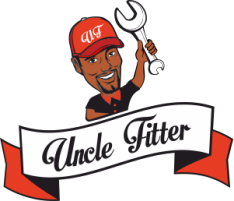Tie Rod End Replacement
What is the Tie Rod End all about?
A car’s steering wheel is connected to the steering gear that helps the steering wheel turn the wheels. The steering gear is connected to the wheels via the tie rod ends. The job of the tie rod end is to ensure the wheels are aligned. It provides the adjustment for wheel alignment that keeps the tires from wearing out on the inner and outer edges. If they wear out, the wheels will lose alignment and you may find that the tires and steering wheels are shaking when you drive the car.
Keep in mind:
The car may need to be taken to a shop for wheel alignment after this service. Mobile mechanics do not have the equipment to align the wheels.
How it's done:
- Verify that the tie rod(s) are bad.
- Remove the road wheel.
- Remove and replace the tie rod end(s).
- Inspect the suspension and steering systems for any worn or damaged parts.
- Reinstall the wheels.
- Test drive vehicle.
Our recommendation:
Whenever your car’s steering system or wheels are inspected, the tie rod ends should be checked. During routine maintenance and service, your tires should always be checked, and abnormal wear and tear will often alert a mechanic that the tie rod ends are failing. If you notice abnormal wear and tear on your tires, then you should schedule an inspection.
What common symptoms indicate you may need to replace the Tie Rod End?
- Excessive tire wear.
- Car pulling to the left or right.
- Steering wheel shakes.
- Vehicle cannot be aligned.
How important is this service?
When you turn your steering wheel, the steering gear is turned, which ultimately turns the wheels. This steering gear is connected to your wheels by way of tie rod ends, which are responsible for keeping each wheel balanced and aligned. The tie rod ends adjust the wheel so that the tires do not develop excess wear on the inside or the outside.
If the tie rod ends break or malfunction, the wheels will not be balanced or aligned. This will not only wear out your tires more quickly (thus causing more common replacements), but will also make your steering wheel shake, and your vehicle tilt in one direction or the other.
How can we help?
Tell us what the problem is (e.g the car is not starting or I need new shock absorbers). What kind of car you drive and your contact information.
© 2026 Uncle Fitter All rights reserved.



